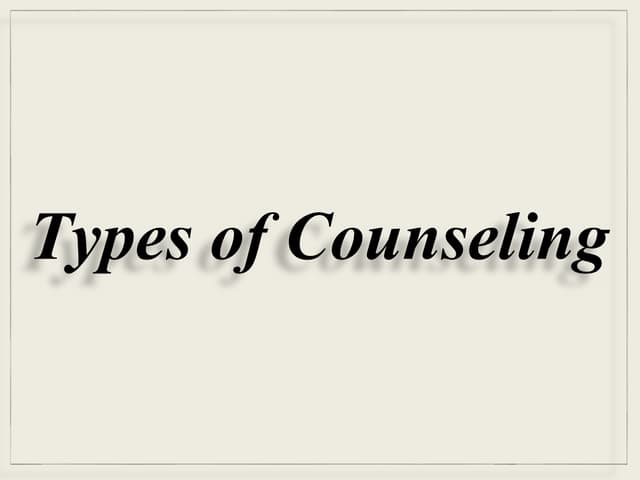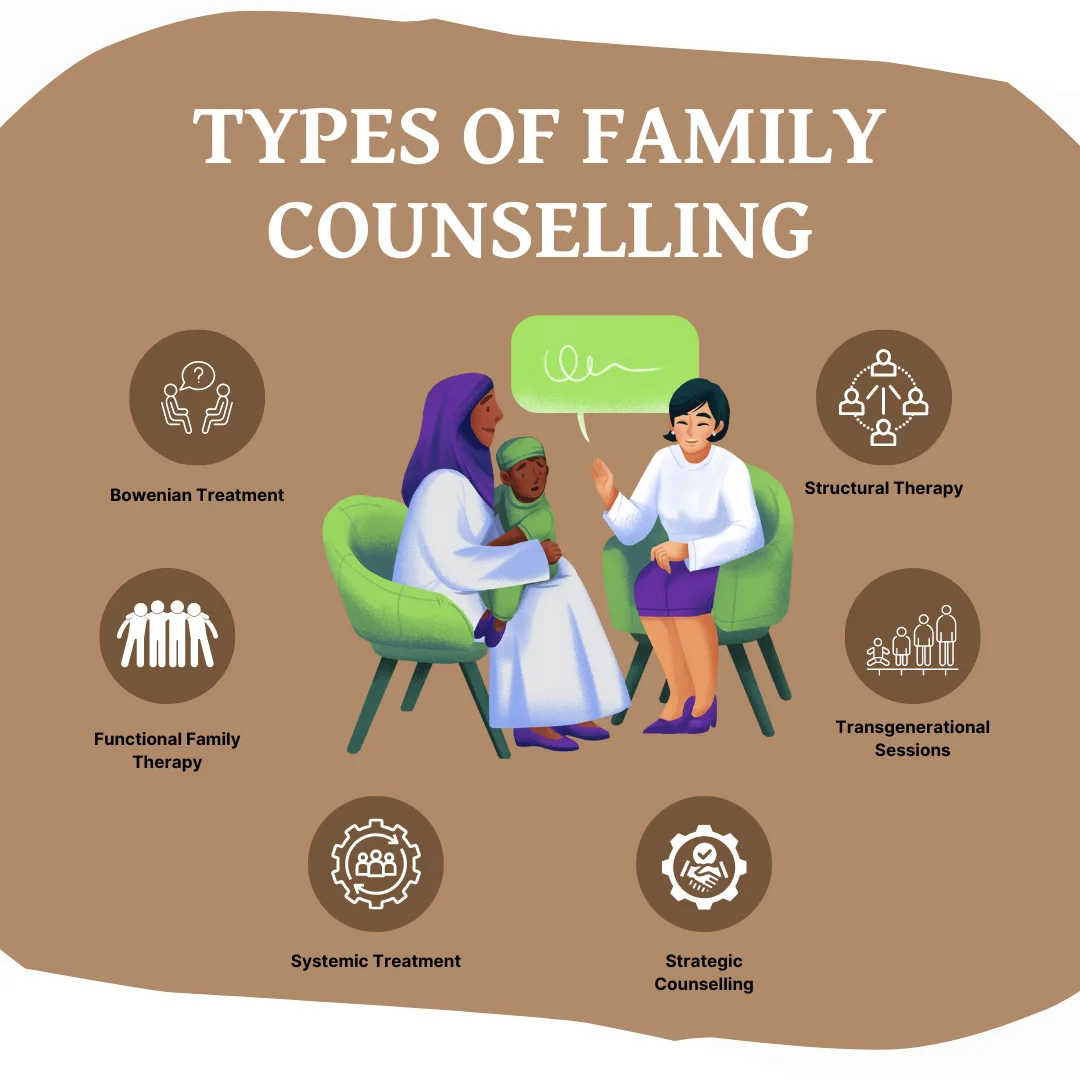The Positive Outcomes of couples counselling online for Newlyweds
A Comprehensive Overview to the Numerous Kinds Of Coaching and Their Effect
Therapy encompasses a range of restorative approaches, each developed to satisfy special psychological wellness needs. From the structured methods of Cognitive-Behavioral Therapy to the empathetic nature of Person-Centered Therapy, these methods supply unique pathways to personal development. Household treatment and Dialectical Behavior modification give added structures for recovery, while group therapy cultivates neighborhood support. Recognizing these varied approaches can brighten their profound effect on private wellness. What remains to be discovered are the ins and outs of each technique.

Understanding Cognitive-Behavioral Therapy (CBT)
Although numerous healing methods exist, Cognitive-Behavioral Therapy (CBT) attracts attention due to its organized, ambitious nature. This form of treatment is based upon the premise that ideas, sensations, and actions are adjoined, and by transforming unfavorable thought patterns, individuals can change their emotional responses and activities. CBT utilizes numerous techniques, such as cognitive restructuring, which aids customers identify and test altered ideas. Behavior activation urges interaction in enjoyable activities to combat depression.
Usually, CBT is a short-term treatment, commonly enduring between 12 to 20 sessions, making it accessible for those seeking quick outcomes. Its efficiency has been well-documented in dealing with anxiousness problems, clinical depression, and various other psychological health problems. The specialist's duty is to guide customers via workouts and homework assignments, cultivating self-awareness and advertising long-term coping techniques. This functional method equips individuals to take control of their psychological well-being, inevitably resulting in boosted life complete satisfaction.
Discovering Person-Centered Therapy
Person-Centered Treatment, developed by Carl Rogers, offers a contrasting strategy to Cognitive-Behavioral Therapy by highlighting the client's subjective experience. This therapeutic design focuses on the person's viewpoint, cultivating a setting of compassion, genuine positive regard, and credibility. By enabling clients to discover their feelings and ideas without judgment, therapists help with personal growth and self-discovery.
The core tenet of Person-Centered Treatment is the belief that individuals have the fundamental ability for self-healing and individual development. In this setup, the specialist serves as a helpful overview rather than an instruction authority, encouraging customers to take cost of their very own journey. This approach is specifically efficient for those coming to grips with issues such as low self-confidence, anxiety, or depression, as it equips them to challenge and understand their emotions. Eventually, Person-Centered Therapy grows a solid healing partnership, fostering count on and openness vital for purposeful adjustment.
The Role of Family Members Therapy in Recovery
Family members therapy acts as a vital part in the recovery procedure for people and their partnerships. This therapeutic technique concentrates on boosting communication, solving problems, and cultivating much deeper links among family members. By dealing with inefficient dynamics, family therapy encourages each participant to share their ideas and sensations in a risk-free environment, promoting understanding and compassion.

The impact of family members therapy prolongs past the sessions, as enhanced partnerships can cause boosted emotional health for all entailed. Generally, family members therapy plays a vital role in healing by promoting unity, durability, and shared support among family members, eventually guiding them toward a much healthier, more satisfying life with each other.
Unboxing Dialectical Behavior Modification (DBT)
Building on the foundation of healing approaches that enhance psychological well-being, Dialectical Behavior modification (DBT) offers a structured structure for people dealing with extreme emotions and behavioral obstacles. Developed by Marsha Linehan, DBT incorporates cognitive-behavioral strategies with mindfulness methods, aiming to help customers handle overwhelming sensations and boost interpersonal effectiveness.
The treatment is especially helpful for those detected with Borderline Character Condition but is additionally suitable to a series of various other psychological wellness concerns. couples counselling. DBT contains individual treatment sessions and abilities training teams, concentrating on four essential ability: mindfulness, distress tolerance, emotion law, and interpersonal effectiveness
The Benefits of Team Therapy Procedure
While individual treatment offers beneficial insights, team counseling sessions use distinct advantages that can significantly boost the therapeutic experience. One important benefit is the feeling of area that arises amongst individuals. People frequently discover convenience in sharing their experiences with others encountering comparable difficulties, cultivating a helpful setting that minimizes feelings of isolation.
Team sessions urge diverse point of views, allowing participants to learn from each various other's coping approaches and insights. This collective knowledge can result in boosted analytical abilities and a more comprehensive understanding of personal concerns.
Furthermore, group counseling often advertises accountability, as participants motivate each other to pursue their objectives and stick to their commitments. Finally, the cost-effectiveness of group therapy makes it an easily accessible choice for lots of people looking for support. Overall, the collaborative nature of group therapy sessions can substantially improve the healing trip.
Often Asked Concerns
What Qualifications Do Therapists Need to Practice Therapy?
Specialists commonly call for an appropriate degree in psychology or counseling, along with monitored scientific experience. Furthermore, they should obtain ideal licensure or qualification to practice legitimately, making sure adherence to expert standards and moral guidelines.
How Do I Pick the Right Kind Of Treatment for Me?
Picking the appropriate sort of therapy involves assessing personal demands, checking out numerous strategies, thinking about therapist specializeds, and seeking referrals. Comprehending specific goals and choices can considerably enhance the performance and complete satisfaction of the healing experience.
Are Online Counseling Sessions as Effective as In-Person Ones?
The performance of online counseling sessions compared to in-person ones typically depends on specific preferences and circumstances. Research study suggests that both techniques can yield favorable outcomes, though some may find greater comfort in face-to-face interactions.
For How Long Does Therapy Generally Last?

What Should I Anticipate Throughout My First Counseling Session?
Throughout the initial therapy session, clients can expect an introduction, conversation of their worries, facility of objectives, and an overview of the therapy procedure - adhd counselling. This first conference aims to build connection and assurance convenience